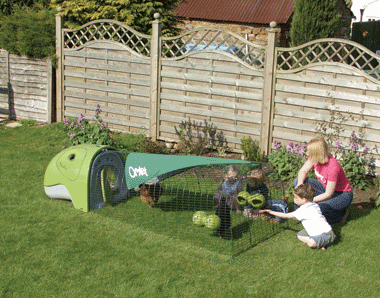
Remarkable by name, remarkable by nature
Here's the output from an interview I did recently with the lovely Edward Douglas Miller, owner of Remarkable. It just goes to show that good design and green products clearly can go hand in hand if we put our minds to it.
'It seems to me that the environmental movement of the 1980s and 1990s has finally been fulfilled. Consumers are actually realising that what was being discussed about the earth’s finite resources, climate change and deforestation is coming into fruition. The biggest change is that has become a mainstream proposition rather than something a load of crusties or eco-warriors we’re chatting about. For the first time you have TV shows with David Atenborough openly talking about the irreversible changes taking place.
In the past few people were addressing the issues as they did not know what they could do about anything. Recycled products were associated with inferior products, that were a rip off price wise and that did not perform as well as existing products in the market place. For my part in all of this, I thought that I would try to develop and initiate a series of tools to disprove this theory and prove what could actually be done.
This way of thinking has turned into a business operation and into a business solution. What Remarkable does is give finite materials a second life and get them back into the market. If you take our pencils as an example, we are now manufacturing 60,000 of them every day that are recycled out of plastic cups and CD cases. If you think about it, this is stopping 60,000 new bits of wood being for used. And by alerting people to the fact that this is exactly what has happened on the product, it makes people feel great about their purchase and educates them about a problem they might not really understand. It is a solution and one that does not come with the burden of guilt. The concept of ‘This used to be …’ really engages with a consumer who used to think that recycling was a ghost of consumerism. We wanted to turn it into something fun. The idea that waste can be turned into something useful can be a fun principle if packaged in a good way. We wanted to show people that it is not something that you have to think long and hard about but recycling in this way is just common sense. Our philosophy at Remarkable is to create recycled items that are well-designed, great quality and a joy to own.
As well as their environmental credentials - all our products are made using only UK recycled materials - we want people to choose Remarkable because they like what we are doing; making products that instil a sense of fun and intrigue, and because all our products evoke a feeling of purpose, passion and excitement.
By highlighting what an item was in its previous life, we feel we are showing what can be made with UK waste - that we are generating a positive interest in recycling and environmental issues. Using the fascination of what an item once was is a new and fun way of communicating the recycled message. In brief, we don't want people to think that recycling is dull. It can actually be very cool!
Everyone always talks about packaging being a big issue for the environment but the trade off is that they always want nice packaging. We are trying to meet this consumer demand half way. We are certainly not saying that we have the solution 100 percent solved but we are showing people how a little bit of common sense can make a big difference. There’s no point saying to consumers that they have to do something, it’s about asking them to think about how they can do something.
We are not trying to say that we are the cheapest product on the market. But if you were going spend twenty pence on a pencil, would you rather have one that cost twenty pence and was made from recycled stuff from the UK and made in the UK, or one that came all the way from China, was not recycled, and cost the same. It’s a no brainer, and it is the challenge we have set ourselves.
We are showing that our products can be fun, they can be recycled, they can look good. These are mass-market products, and people want them in a mass market way rather than something niche, and overly expensive.
And as a result of us doing this, we have just set up Remarkableoffice.co.uk. Customers of ours kept ring us and asking us where they could get other green and environmentally sound products, so we thought we’d better help them out. We now have over 1,500 products from organic tea right through to aluminium foil. We’ve sort of become a green version of Viking Direct.
If people start doing what they say they want to do when it comes to environmental concerns, it has to be a good thing and better than not doing anything at all. We are concerned about the environment but we are a business too. There is no reason why the two concepts cannot go hand in hand. I am not a revolutionary but there is a whiff of revolution in the air. We don’t want to turn into a business like M&S, Walls or Ben & Jerry – we just want to be Remarkablke and be known for being remarkable.'


